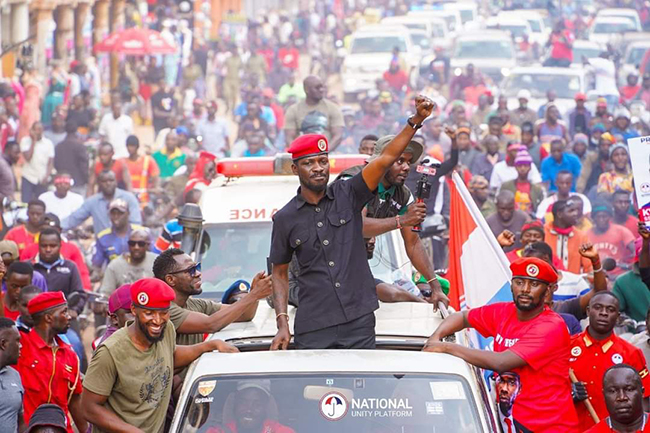
The Uganda Police Force has reiterated its suspension of the National Unity Platform (NUP) party’s nationwide tours, citing non-compliance with guidelines. The NUP announced over the weekend that they planned to resume their tours, starting with Kamuli District on Wednesday, but the police have swiftly moved to block the initiative.
The planned itinerary included visits to Bugweri, Pallisa, Tororo, Mityana, Mukono, Masaka, Kyotera, Bukomansimbi, Masindi, Packwach, Zombo, Koboko, Sembabule, Kiruhura, Bushenyi, Rukungiri, Gulu, and Pader, concluding with Kitgum District. These tours are intended as part of NUP’s preparation for the upcoming 2026 General Election.
However, police spokesperson Fred Enanga told journalists that the tours remain suspended due to previous breaches of guidelines by the NUP.
"The suspension continues until the NUP leadership complies with police guidelines and continues to be law-abiding," Enanga stated.
He emphasized the police's constitutional duty to maintain peace and order, ensuring a safe and secure environment for Ugandans and visitors.
Enanga highlighted that the police are aware of NUP’s new schedule but maintain that last year’s ban remains in effect until compliance is achieved. This ban followed incidents during a NUP campaign rally in Hoima District, where a supporter died, and ten others were injured in a convoy accident.
In response, NUP spokesperson Alex Mufumbiro insisted that the party has adhered to all guidelines and is within its constitutional rights to hold consultation meetings.
"We have followed all the guidelines as any other political party in this country. We are also a registered political party, mandated by the Constitution to hold consultation meetings," Mufumbiro said.
He encouraged Ugandans to support NUP’s efforts for a better Uganda and expressed confidence that the police would provide the same security as during the first phase of their consultations.
Last year, NUP's tours attracted large crowds in various districts, including Mayuge, Busia, Mbale, Mbarara, Kasese, Kabale, Arua, and Luweero. However, their mobilisation efforts were halted when the police accused NUP of deviating from agreed-upon guidelines, inciting violence, promoting sectarianism, and making defamatory statements against President Museveni.
A police statement by then Deputy Inspector General of Police Tumusiime Katsigazi indicated that NUP's activities were suspended due to these breaches. Katsigazi claimed that in Kasana-Luweero, NUP’s mobilisation incited violence and called for the removal of the elected government.
Legal experts, however, argue that the police’s actions are unconstitutional. Constitutional lawyer Peter Walubiri and human rights lawyer Eron Kiiza both criticized the police’s stance, stating that the Public Order Management Act only requires informing the police of public gatherings, not seeking clearance. Kiiza urged NUP to continue their meetings, asserting that they are lawful and a form of freedom of association and expression.
“The police have no power to stop them because consultative meetings are a constitutional right,” Kiiza said.
He stressed that the Police Act’s mandate is to regulate, not stop, gatherings and to provide security, isolating any criminal elements within a gathering.
As NUP plans to continue its consultations, the ongoing tussle with the police highlights the broader struggle for political freedoms and adherence to constitutional rights in Uganda.

















